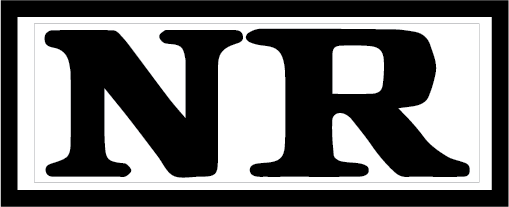

Ruefully, Al Jazeera senior producer Samir Khader rounds off the documentary Control Room by reminding us of the world's short attention span: "History is written by the victors." With Control Room, director Jehane Noujaim turns the Iraqi war story inside out for the Western "victors" accustomed to CNN and BBC coverage, and prods us not to forget history.
Control Room takes us inside the offices of the Al Jazeera news network—the dominant news outlet of the Arab world—and the halls of the Coalition Media Center at U.S. Central Command (Centcom), located only ten miles from Al Jazeera's facilities in Qatar. Most Americans have already formed their ideas of Al Jazeera as an intensely biased, anti-American propaganda tool. Noujaim, who previously co-helmed the exceptional doc Startup.com with Chris Hegedus, regularly inserts press conference clips of U.S. Secretary of Defense Donald Rumsfeld taking broad, daily shots at Al Jazeera without noting any specific or verifiable grievances. Beyond Rumsfeld's barbs, Americans' sense of Al Jazeera's war coverage extends mostly to what CNN has editorially selected to show us.
Control Room plunges us into a round-table symposium on modern news reportage and, in particular, Al Jazeera, from a variety of viewpoints which largely refuse to dismiss the network out of hand. Viewers can also decide for themselves, from Noujaim's footage of staffers at work before her camera, the extent of the network's journalistic integrity. Though perhaps less so with the benefit of hindsight, many viewers will be surprised to find that Al Jazeera staffers have rigorous standards and, in their inherently biased points of view, a refreshing honesty about reporting the truth as they see it. "This word 'objectivity' is almost a mirage," an Aljazeera.net representative tells an American reporter. "Are any US journalists objective about this war?"
Passionately reporting the news that Middle Eastern and world viewers arguably need to know compares favorably to the American media farce of misinformation and sleight-of-hand perpetrated by the U.S. military and too often swallowed, if bitterly, by American newscasters. Even here, Noujaim refuses to play into our rapidly shifting assumptions: American reporters are seen pressing the military on withheld information, and the man who would be the film's presumable "bad guy"—boy-next-door press officer Lt. Josh Rushing—provides a running-commentary self-debate about truth in journalism even as he defends the US military's line in the sand. Rushing turns out to be more than a well-chosen stooge; he turns out to be sincere and open-minded, with comments like "It benefits Al Jazeera to play their nationalism, because that's their audience. Just like Fox plays to American patriotism for the exact same reason."
Noujaim allows the development of other compelling characters, like Sudanese journalist Hassan Ibrahim, a Sudanese journalist and former BBC staffer who schooled in Saudi Arabia with Osama bin Laden. Ibrahim seems to live in a perpetual tension of grim disbelief and hand-tossing submission to the absurdities of Iraqi life under American bombs. "Rumsfeld is saying, parading the footage of the captives is a violation in violation of the Geneva Convention," Ibrahim opines. "What do you call Guantanamo Bay?" In the shadow of Abu Ghraib, we realize he didn't know the half of it. The film's insightful star, though, is proud professional Khader. Expressing his willfulness to "change the Arab nightmare to the American dream," Khader guiltily admits his own readiness to seize a parachute: "If I'm offered a job with Fox, I will take it."
On international television, George W. Bush warns that "I was only following orders" will be no defense, and later, Noujaim precociously includes clips of American soldiers held hostage blankly blaming their behavior on orders. While never openly embracing Ibrahim's resistance to American occupation ("Eventually you will have to find a solution that does not include bombing people into submission"), Noujaim focuses her criticisms on the hypocrisies of media management, touching on the "Most Wanted" deck of cards press-room debacle, the Jessica Lynch fable, and the death of Al Jazeera journalist Tarek Ayyoub in a US bombing raid which, by all appearances, was a warning to journalists unfriendly to CentCom's company line. Noujaim risks making her own propaganda of Ayyoub's death by taking in the tears of his colleagues, but her insistent disinclination against overtly making an unfounded claim of a US "censorship or death" policy gives even more credence to her circumstantial evidence. Michael Moore, take note: here are compelling ways to provide us with more of the big picture.